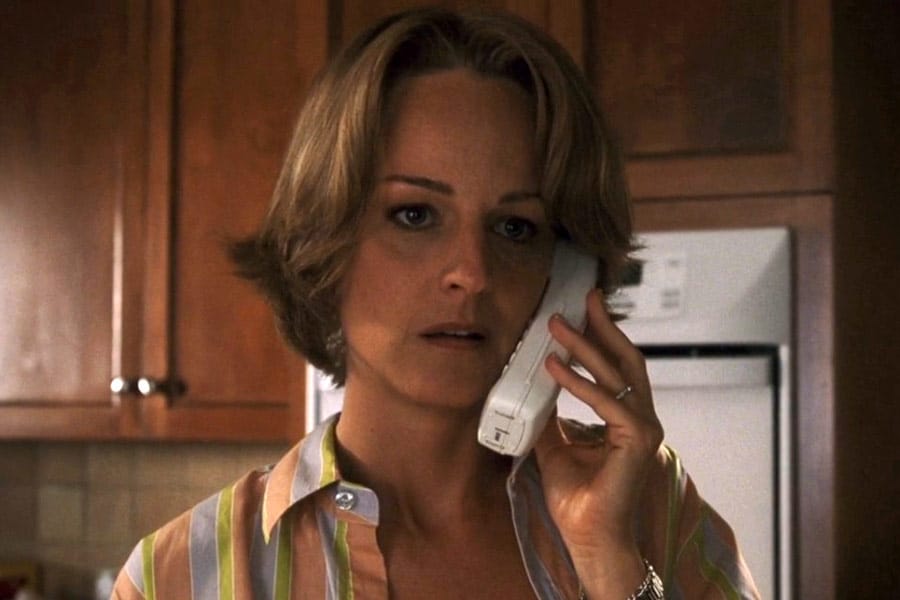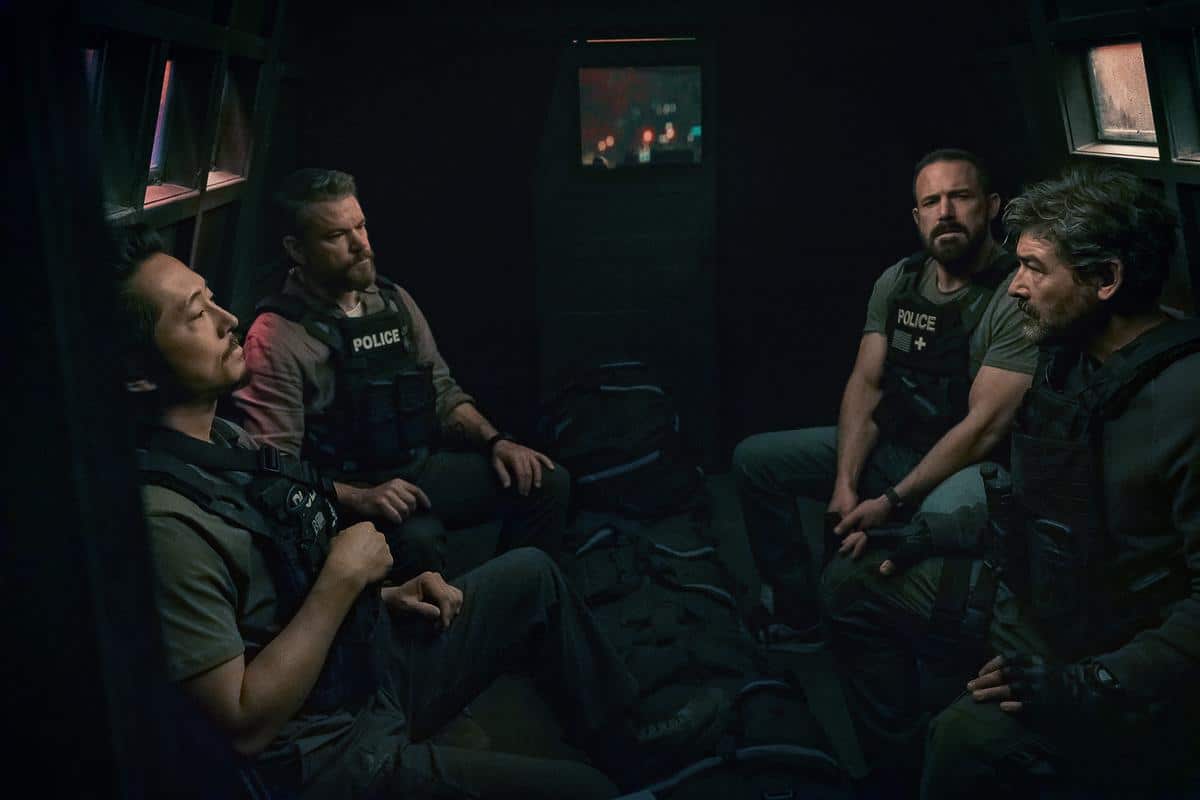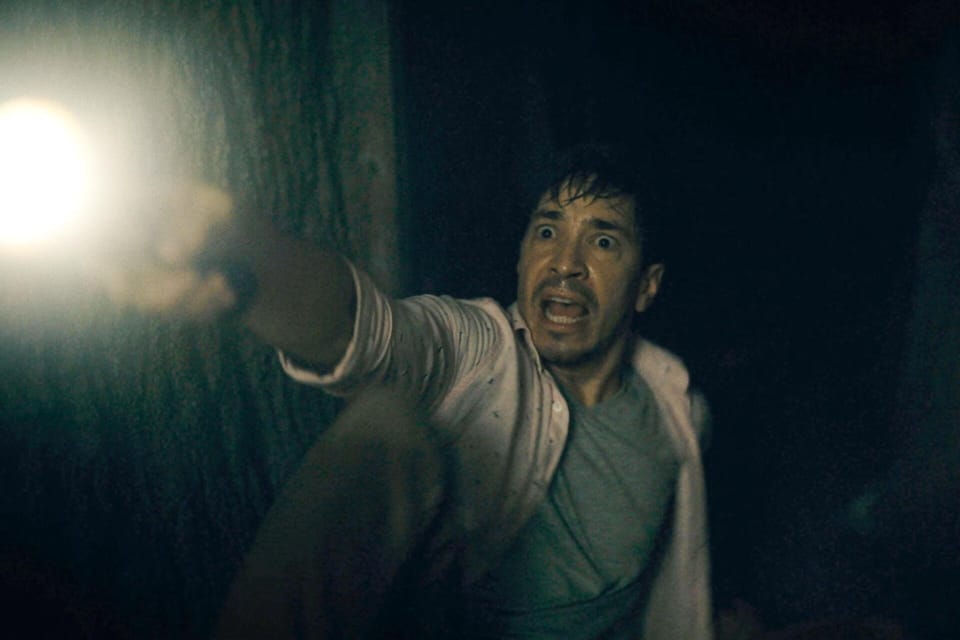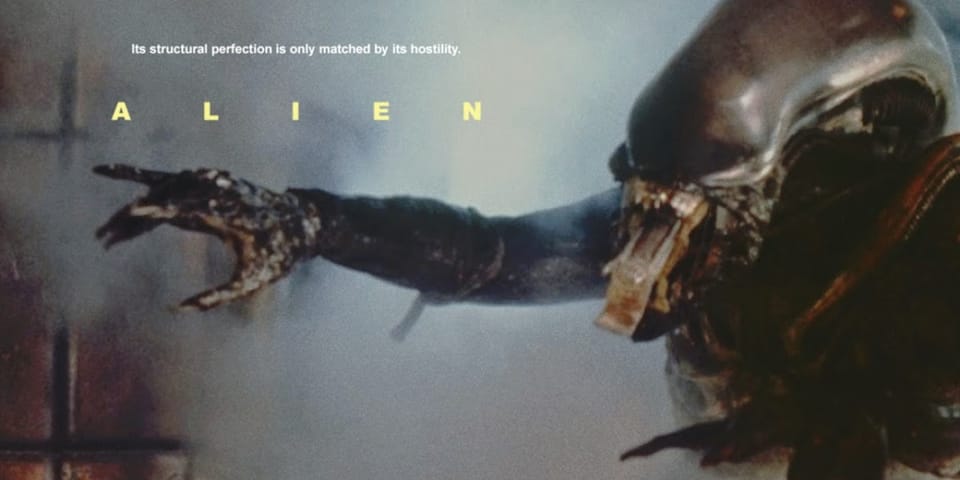Does the relationship trump the dramatic question?
How could a movie possibly work when the dramatic question is answered at the end of Act 2?

The Story and Plot Weekly Email is published every Tuesday morning. Don't miss another one.
We're going to close this year's Weekly Emails with one of my favorite topics.
The Dramatic Question.
Whether you call it the central, primary, or principal, it's the singular dramatic action that we anticipate an answer to.
Will Indy get the Ark?
Will they stop Thanos?
Will they get off the ship alive?
Will the dude get the gal?
Will the gal get the dude?
To answer the dramatic question is usually to end the movie.
Why keep going? The thing we have been waiting for has happened. We're done. Time to go home!
However, this email will focus on the unique dramatic question that is answered at the end of Act 2 rather than Act 3.
And when I say unique, it is genuinely unique. From a writing perspective, there really isn't much reason to do it and have it be the better choice.
Answering the dramatic question at the end of Act 2 rarely works well.
Yet, it has come up in questions lately, and even a screenplay I gave notes on.
Will the hero win the prize he has been working toward the whole movie to earn? Yes! He does!
But there are still 25 pages left. Yikes! So what is this going to be about now?
The story struggles to maintain an engaged audience. Momentum comes to a screeching halt.
There is a wonderful line near the end of DEADPOOL AND WOLEVERINE when Deadpool speaks to the camera, "Homestretch, folks. Promise."
This is a kind acknowledgment of how so many movies outstay their welcome these days.
But you know what's worse than a movie that doesn't end? A movie that DOES end but keeps going anyway!
Such a choice is usually unplanned.
It's often because we have backed ourselves into a corner and don't know how to get out of it. Or we're trying to surprise ourselves and, therefore, the audience.
It's a last-minute thought we add as we get there.
We throw in this Hail Mary and pretend it's a strong structural choice that feels innovative. We did it to catch the audience off guard!
That's the ticket.
(Please don't ask how I know this.)
It can be tempting because sometimes, it DOES work.
Two of my absolute favorite movies do it. Both SPEED and CAST AWAY answer the dramatic question and then successfully continue for another whole act.
In CAST AWAY, Tom Hanks's character Chuck Noland (I just now realized the nature of that name) is rescued with 30 minutes left of story.
In SPEED, they get off the bus safely with 20 minutes of action left.
Far more recently, LONGLEGS answers the dramatic question with a surprising amount of narrative remaining.
I will lay off that one, as spoilers would be cruel for those who have not seen it, but the basic principle of how all these films do it remains.
More plot is rarely how this shift works.
Answering the dramatic question and then adding more plot is likely to frustrate the audience.
The thing we cared about is over. Trying to get us to care even more about an entirely new problem is a challenge.
SPEED comes the closest to this, as they contrive an excuse to put Annie (Sandra Bullock) in danger. Yet, it is what they contrive to that works.
We've been watching these characters struggle to keep the bus from exploding and killing nearly a dozen people for an hour.
Once that is no longer an issue, capturing the bad guy must happen, but it feels like a significantly lesser problem! We are lowering the stakes when we should be raising them.
The solution? Threaten the one thing we care about more than anything else: the relationship between Keanu and Sandra Bullock.
This is how they make a story about a bus succeed when the bus is no longer in the story.
It's the relationships that matter.
Just as Chuck (Tom Hanks) is being rescued in Cast Away, he mutters "Kelly."
He's been drawing her on the cave wall for years.
As we cut away from the ship that will pull him out of the water, the film goes directly to Kelly answering the phone, getting the news that he's alive and revealing that she has a husband and child.
He has fought so much to get back to her, yet she has moved on with a new life.
The film does not waste time showing his rescue. It goes straight to her and gives us a new dramatic question immediately.
One we care deeply about.
Many films split the difference.
Answering the dramatic question at the end of the 7th sequence in the middle of Act 3 is a much more common structure.
Perhaps my favorite film, THE APARTMENT, does this as C.C. Baxter gets promoted.
DOC HOLLYWOOD and CARS (but I repeat myself) both do this.
This is a common choice when the audience doesn't necessarily root for the protagonist to get what they want. When they do, it feels empty.
This leaves us rooting for them to get what we really want them to get.
And what is that?
To properly honor the relationship we DO care about.
Another core principle.
I tell my students at the University of Houston that I would rather repeat a dozen core principles over and over again so they remember them their entire career and then test them on hundreds of data points they forget by the next semester.
One of those core principles would be:
It's the relationships that matter.
Always ask yourself:
- What is the most important relationship in your screenplay?
- And does your screenplay honor it?
If you don't know the answer to #1, take the time to figure it out. And then make sure the answer to #2 is YES.
In every case I mentioned of the dramatic question being answered long before the movie ended, it was the relationship that the narrative turned to.
In each example, it was the relationship that we really cared about, and the central dramatic question was just a way to get us closer to the answer we really needed.
The Story and Plot Weekly Email is published every Tuesday morning. Don't miss another one.
When you're ready, these are ways I can help you:
WORK WITH ME 1:1
1-on-1 Coaching | Screenplay Consultation
TAKE A COURSE
Mastering Structure | Idea To Outline




